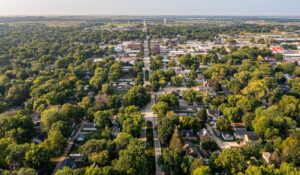Understanding the Alabama Closing Costs
Closing costs can be a daunting aspect of the home-buying process, often shrouded in mystery and confusion. Whether you’re taking your first step into homeownership or you’re a seasoned pro in the real estate game, it’s important to grasp the nitty-gritty details of closing costs. Having this knowledge will give you the confidence to make smart financial decisions when you’re on the hunt for your dream property in Alabama. This comprehensive guide will unravel the complexities of closing costs in Alabama, explore the various components involved, and provide tips and insights to help you navigate this crucial phase of your home-buying journey.
Why Understanding Closing Costs Matters
Before delving into the specifics of closing costs, it’s essential to grasp why they matter. Closing costs are the fees and expenses of finalizing a real estate transaction. At the same time, they might seem like an additional financial burden, but having a clear understanding of these costs empowers you to budget effectively and avoid any last-minute surprises. Being well-informed about closing costs ensures that you can make the best decisions for your financial situation, potentially saving you thousands of dollars in the process.
What Are Closing Costs, Anyway?
Closing costs encompass many expenses, each serving a unique purpose in homebuying. Let’s break down the most common components that make closing costs in Alabama:
Common Closing Costs:
- Down Payment: While not technically a closing cost, the down payment is a significant upfront expense you’ll need to cover. It typically represents a percentage of the home’s purchase price, which can vary depending on your mortgage terms and financial situation.
- Loan Origination Fee: This fee covers the administrative costs of processing your mortgage application. Lenders charge it to compensate for the work in evaluating your creditworthiness and managing your loan.
- Appraisal Fee: An appraisal is a crucial step in the homebuying process, as it determines the property’s fair market value. The appraisal fee covers hiring a licensed appraiser to assess the property’s value.
- Credit Report Fee: Lenders pull your credit report to evaluate your credit history and assess your creditworthiness. This fee covers obtaining your credit report from one or more credit bureaus.
- Attorney Fees: In Alabama, it’s common for both the buyer and seller to have their attorneys involved in the closing process. Attorney fees may include document preparation, legal advice, and ensuring the transaction complies with state and local laws.
- Title Search and Insurance: Right before you seal the deal, there’s something important to do – a title search. This step makes sure the property’s title is problem-free, with no issues or disputes hanging over it. Title insurance protects you against any unforeseen issues with the property’s title that may arise in the future.
- Property Taxes: Depending on when you close the deal and how property taxes work for your new place, you might have to put some money down upfront for a portion of the annual property taxes.
- Homeowner’s Insurance: Lenders often require you to secure homeowner’s insurance before closing. This insurance protects both you and the lender in case of damage or loss to the property.
Special Considerations for Homebuyers in Alabama
Alabama has its own set of considerations and costs that homebuyers should be aware of:
1. Alabama Mortgage Tax
Alabama imposes a mortgage tax on homebuyers. The amount varies by county, and it’s typically calculated based on the loan amount. This tax can be a significant closing cost, so factoring it into your budget is essential.
2. Transfer Tax
Alabama also levies a transfer tax on real estate transactions. Like the mortgage tax, this cost varies by county and is typically split between the buyer and seller. Understanding your county’s specific transfer tax rates and regulations is important.
3. Recording Fees
When you close on a property in Alabama, various documents, including the deed and mortgage, must be recorded with the county. Recording fees cover the cost of officially documenting these important records.
4. State and Local Taxes
In addition to the taxes mentioned above, be aware of any state or local taxes that may apply to your real estate transaction. These can vary based on your location within Alabama.
Tips for Shaving Off Some Expenses
Now that you’re familiar with the components of closing costs in Alabama let’s explore some practical tips to help you minimize these expenses:
1. Asking the Seller to Cover Some Costs
At times, you can talk to the seller and ask them to help with some of the closing costs. It’s a way to make things a bit easier on the buyer’s finances.
2. Comparison Shopping for Services
Don’t hesitate to shop around for services such as title insurance, attorney fees, and inspections. Obtaining multiple quotes can help you find the most competitive prices.
3. Reviewing the Loan Estimate
When you receive a Loan Estimate from your lender, carefully review it to ensure you understand all the associated costs. If you have questions or notice discrepancies, don’t hesitate to seek clarification from your lender.
4. Negotiating with Lenders
Lenders may be open to negotiation when it comes to certain fees and interest rates. It’s worth exploring these options to potentially reduce your closing costs.
Alabama’s Programs to Help with Closing Costs
Alabama offers various programs and resources to assist homebuyers with their closing costs:
Down Payment Assistance
There are programs out there that offer financial help to eligible buyers. These programs can help cover the costs of down payments and closing expenses. They usually depend on your income and are meant to make owning a home more achievable.
First-Time Homebuyer Programs
If you’re a first-time homebuyer in Alabama, there are special programs just for you. They’re designed to make those closing costs and down payments easier on your wallet.
Federal Grants and Loans
Explore federal programs like FHA loans and VA loans, which offer competitive terms and potential assistance with closing costs.
Local Grants and Incentives
Many counties and municipalities in Alabama offer grants, incentives, or tax credits to encourage homebuyers to invest in their communities. Research local options that may be available to you.
Clarifying Responsibilities
Understanding who is responsible for which closing costs is crucial:
Buyer’s Closing Costs
Buyer’s closing costs typically include expenses like loan origination fees, appraisal fees, credit report fees, attorney fees, and homeowner’s insurance.
Seller’s Closing Costs
Sellers often cover costs such as real estate commissions, transfer taxes, and some closing costs negotiated during the transaction.
Working with Professionals
Navigating the complexities of closing costs in Alabama is made easier by working with experienced professionals. Real estate agents, attorneys, and lenders can provide invaluable guidance throughout the process. Don’t hesitate to seek their expertise to ensure a smooth and successful home-buying experience.
Final Thoughts
In conclusion, understanding closing costs in Alabama is essential for anyone embarking on a home-buying journey. By familiarizing yourself with the various components, seeking ways to minimize expenses, and exploring available assistance programs, you can make informed decisions and secure your dream home without breaking the bank. Remember, a well-informed buyer is a confident buyer, and that confidence can lead to a more successful and enjoyable home-buying experience.
For more detailed information, please visit https://inlandbayrealty.com/foley-alabama-closing-costs/.



